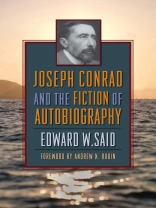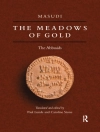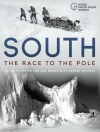Edward W. Said locates Joseph Conrad’s fear of personal disintegration in his constant re-narration of the past. Using the author’s personal letters as a guide to understanding his fiction, Said draws an important parallel between Conrad’s view of his own life and the manner and form of his stories. The critic also argues that the author, who set his fiction in exotic locations like East Asia and Africa, projects political dimensions in his work that mirror a colonialist preoccupation with ‘civilizing’ native peoples. Said then suggests that this dimension should be considered when reading all of Western literature. First published in 1966, Said’s critique of the Western self’s struggle with modernity signaled the beginnings of his groundbreaking work,
Orientalism, and remains a cornerstone of postcolonial studies today.
قائمة المحتويات
Foreword, by Andrew N. Rubin
Preface
List of Abbreviations
Part One: Conrad’s Letters
I. The Claims of Individuality
II. Character and the Knitting Machine, 1896-1912
III. The Claims of Fiction, 1896-1912
IV. Worlds at War, 1912-1918
V. The New Order, 1918-1924
Part Two: Conrad’s Shorter Fiction
VI. The Past and the Present
VII. The Craft of the Present
VIII. Truth, Idea, and Image
IX. The Shadow Line
Chronology, 1889-1924
Letter to R. B. Cunninghame Graham, February 8, 1899
Selected Bibliography
Notes
Index
عن المؤلف
Edward W. Said (1935-2003) was University Professor of English and Comparative Literature at Columbia University. He was the music critic for the
Nation and is the author of numerous books, including
Music at the Limits,
Musical Elaborations,
Beginnings: Intention and Method, and
Humanism and Democratic Criticism.












